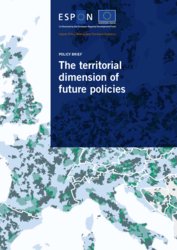Policy Brief: The territorial dimension of future policies
Shaping the territorial dimension of future policies requires an understanding of the territorial diversity around the EU within and beyond their administrative boundaries. This is a prerequisite for policy approaches and implementation tools that can help to maximise the development potential of places and consequently the well-being our fellow Europeans.
Eventually, this territorial thinking should become an integral part of pan-European and national policy that guides the design and implementation of regional, urban and local development strategies.
Amidst the discussions on the future of EU-level policies including Cohesion Policy and in view of the upcoming preparation for the next generation of strategies and programmes at national, regional and local scales, the ESPON 2020 Cooperation Programme has delivered new territorial evidence, addressing key challenges and opportunities for the future development of cities and regions, including employment, business development, connectivity, public services, low-carbon economy, governance, etc.
In this context, ESPON released a new policy brief and working paper that bundles together key observations and policy messages from ESPON studies with the aim of supporting the debate on the territorial dimension of future policies at European, national, regional and local scales.
Accordingly, this working paper seeks to answer three main questions:
- What should be the geographical principles of future policy interventions and how should certain types of areas be specifically targeted?
- How should one address regional and urban development challenges and create new opportunities in key development fields?
- Which methods/approaches should be applied to increase the efficiency of policy interventions, maximise the return on investment and develop synergies leading to innovative development solutions?
The policy brief and working paper (published on 11 April 2018) are available for download below.



